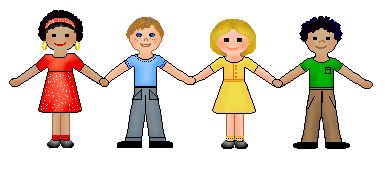I recently attended an evening workshop on wairuatanga, one of the theoretical principles of tikanga, the Māori way of doing things. I gathered that Māori have an understanding and inherent belief that there is an underlying spiritual existence in addition to the physical.
We all have different points of view on the meaning of spirituality, and for some it has no meaning at all. Spirituality does not mean religion even though religion is spiritual in essence. The difference is that spirituality needn't be religious, as religion is an organised system of rituals and worship, but could be looked upon as a universal concept underlying all religions.
From the perspective of an early childhood setting wairuatanga reflects the holistic way children develop and learn, "the physical surroundings, the emotional context, relationships with others, and the child’s immediate needs at any moment will affect and modify how a particular experience contributes to the child’s development." (Ministry of Education, 1996, p.41).
Te Whāriki, the early childhood curriculum acknowledges a holistic approach to learning and development and refers to the the child's whole context that incorporates emotional and social experiences which contributes to their well-being. This learning and development is achieved through a, "recognition of the spiritual dimension of children's lives in culturally, socially, and individually appropriate ways" (Ministry of Education, 1996, p.41).
The curriculum also states that adults should, "acknowledge spiritual dimensions and have a concern for how the past, present, and future influence children's self-esteem and are of prime importance to Māori and Tgata Pasefika families" (Ministry of Education, 1996, p.46). This recognition of spirituality in our curriculum is a commitment to the bicultural partnership and acknowledgement of Māori belief.
In the context of wairuatanga in relation to our early childhood curriculum, the strand of well-being is an acknowledgement and recognition of spirituality in a sense, as the goal is for a child to "experience an environment where their emotional well-being is nurtured" (Ministry of Education, 1996). Empowerment. self-worth, and self-esteem can all be viewed from a spiritual point of view to recognise the principle of holistic development.
In The Quality of Assessment in Early Childhood Education (November 2007), ERO mentions that they looked in to how well services reflected holistic development in their practice. They found that over a third did not reflect a number of aspects of children’s learning and development in their assessment information with very little focus on attitudes and cultural dimensions. What was lacking was a more in-depth approach to identify assessment that was holistic, as they only detailed children's activities. This demonstrated a limited understanding of Te Whāriki.
Gipsy Foster (2009) suggests that, "Teachers should take a developmental approach to their own understandings of spirituality so that they engage their students authentically and without hidden agendas, as suggested in the Early Childhood Curriculum document, Te Whāriki. The practical possibilities allow both teacher and learner to shape and reshape the meaning of wairuatanga as they interact with one another and their environments in meaningful ways."
In conclusion, wairuatanga is an abstract concept that permeates our daily existence. Call it belief or spirituality, the fact remains that we all strive to offer children in our education system an environment where their emotional well-being is nurtured to reflect the holistic way they develop and learn, which we as teachers need to document and identify in our assessment.
References
http://spiritualityandwellbeing.co.nz/definitions/
Gipsy Foster (May, 2009). Conceptualising Wairuatanga: Rituals, Relevance and Realities for teachers. University of Canterbury, New Zealand.
Ministy of Education (1996). Te Whāriki: He Whāriki Mātauranga mō ngā mokopuna o Aotearoa. Wellington: Learning Media.
The Quality of Assessment in Early Childhood Education (November 2007) 01/11/2007
